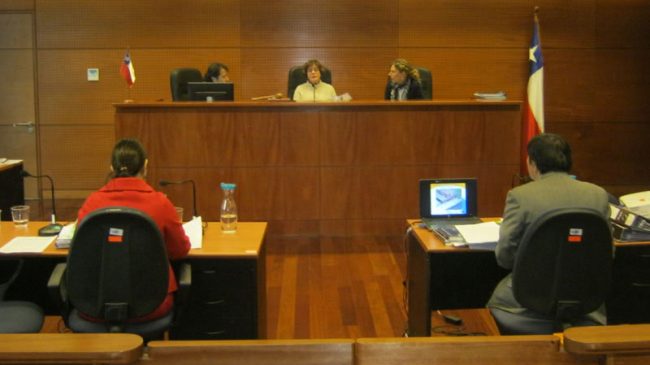A new study by Reason Foundation, Pelican Institute for Public Policy, and Texas Public Policy Foundation:
Over the past several decades, Louisiana legislators have passed a number of determinate sentencing laws aimed at reducing crime and incapacitating certain types of offenders. Because these laws have been disproportionately applied to nonviolent crimes, nonviolent offenders now account for the majority of inmates and admissions to prison in the state. This has produced a number of unfortunate consequences, such as an increase in the state’s prison population from 21,007 in 1992 to 39,709 in 2011 and a $315 million increase in correction expenditures during the same time period, from $442.3 million (in 2011 dollars) in 1992 to $757.4 million in 2011. Meanwhile, there is little evidence that the laws have done anything to reduce Louisiana’s violent crime rate, which remains considerably above both the national average and the rates in its neighboring states. Today, Louisiana has the highest incarceration rate in the country, with 868 of every 100,000 of its citizens in prison.
Louisiana’s citizens could benefit considerably from changes to the way in which convicted criminals are sentenced. As things stand, nonviolent offenders who pose little or no threat to society are routinely sentenced to long terms in prison with no opportunity for parole, probation or suspension of sentence. In most cases, this is a direct result of the state’s determinate sentencing laws. These prisoners consume disproportionate amounts of Louisiana’s scarce correctional resources, which could be better utilized to ensure that violent criminals are more effectively kept behind bars.
Among the more serious problems with Louisiana’s determinate sentencing laws are:
- A large number of crimes that carry mandatory minimum prison sentences in Louisiana are drug-related and nonviolent in nature. Indeed, numerous violent crimes, such as negligent homicide, manslaughter, aggravated assault with a firearm, aggravated battery, simple rape and simple kidnapping carry no mandatory minimum sentences at all.>
- Mandatory minimum sentences eliminate judicial discretion over sentencing by prohibiting judges from taking into account factors specific to the crime or offender when determining the sentence.
- Mandatory minimum sentences create arbitrary outcomes by drawing essentially trivial lines between degrees of criminal activity that can result in dramatic differences in punishment. This happens most commonly with sentences for drug crimes, where different weights or quantities of drugs carry varying degrees of punishment. For example, possession of 199.9 grams of cocaine carries a mandatory minimum sentence of five years of hard labor in prison and a $50,000 fine. However, possession of 200 grams of cocaine carries a mandatory minimum sentence of 10 years of hard labor in prison and a $100,000 fine-double the punishment for a negligible 0.1 gram more of cocaine.
- There are significant disparities between Louisiana’s mandatory minimum sentences for drug offenses and similar mandatory minimums enacted at the federal level. Federal mandatory minimum sentences are generally targeted at drug kingpins, so there are no federal mandatory minimum sentencing statutes for the simple possession of any drug, for example. However, low-level offenders convicted of possession of a small amount of drugs are routinely sentenced to serve mandatory minimum sentences for several years in Louisiana.
- Mandatory minimum sentences, combined with restrictions on parole, probation and sentence suspension, can discourage prisoners from undertaking rehabilitation, which may explain why rates of recidivism for released drug and property offenders are much higher than for released violent offenders.
- Under the habitual offender law, a nonviolent offender convicted of a minor offense as a third-time habitual offender could be sentenced to serve the majority of his or her life in prison without the possibility of parole, probation or suspension of sentence. Such a sentence is grossly disproportionate and goes against a basic principle of criminal justice: that the punishment fit the crime.
- Determinate sentencing laws prevent correctional resources from being more efficiently and effectively used on criminals who pose a threat to public safety.
In recent years, Louisiana legislators have passed a series of modest sentencing reforms in an attempt to address these problems. These have included reducing the length of mandatory minimum prison sentences for nonviolent offenses, expanding parole eligibility for certain offenders sentenced to life in prison for nonviolent offenses, and limiting the scope of the habitual offender law’s application.
Other states have gone further. In Maine, legislators passed safety valve provisions that allow judges to depart below mandatory minimum sentences in certain instances. In Rhode Island, legislators repealed mandatory minimum sentences for nonviolent drug offenses. These reforms have allowed Maine and Rhode Island to save prison space and resources for criminals who pose a real threat to society, while reducing corrections costs. Louisiana could benefit from similar changes to sentencing policy.
Going beyond the experience of Maine and Rhode Island, there are numerous potential reforms that might reduce the state’s prison population and corrections expenditures without compromising public safety. Louisiana legislators could repeal mandatory minimum sentences for nonviolent offenses. They could also amend the habitual offender law so that it applies only to those convicted of two or more violent or sex offenses, and they could make both changes retroactively applicable. If state legislators made these changes, violent criminals would continue to be punished for their crimes, while nonviolent offenders would face sentences that were more proportional to their offenses. Moreover, it’s likely that Louisiana would significantly reduce its prison population and corrections expenditures, which would enable it to invest more resources per prisoner, expand rehabilitation programs, reduce recidivism rates, and perhaps finally forfeit its dubious title, “highest incarceration rate in the nation.”

